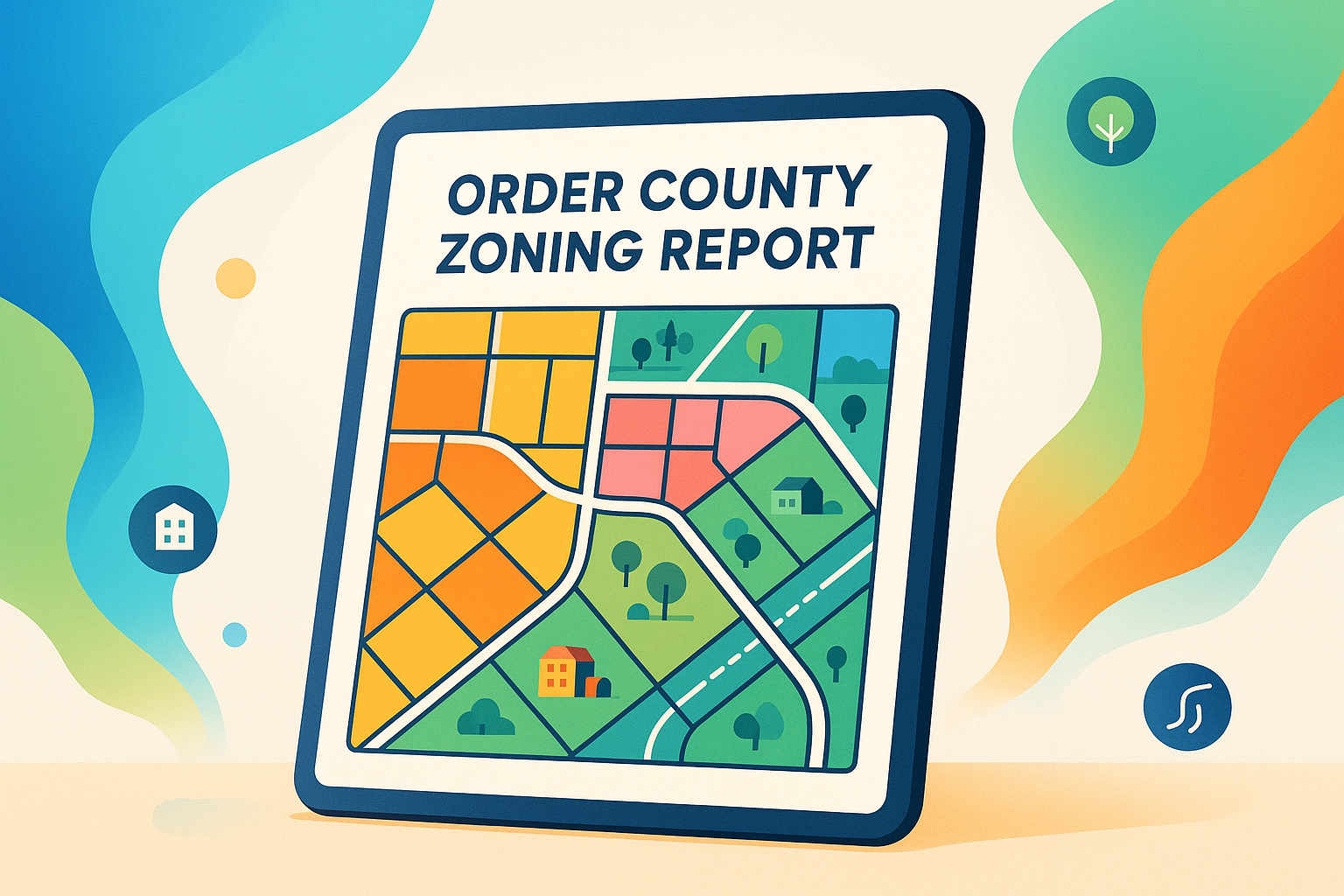AI chatbots are transforming real estate by offering instant, personalized responses and automating complex tasks. Here’s what you need to know:
- Faster Responses: 82% of consumers prefer immediate chatbot replies over waiting for human assistance. Chatbots reduce response times by 30%.
- Tailored Property Recommendations: By analyzing user preferences, behavior, and budget, chatbots suggest properties that match individual needs.
- Streamlined Operations: These tools handle 79% of routine questions, freeing agents to focus on critical tasks.
- Real-Time Data Access: Chatbots connect directly to property databases, providing instant details on listings, zoning laws, and market trends.
- Higher Conversions: Companies using chatbots report a 40% boost in lead conversion rates.
AI chatbots are becoming essential in real estate, helping both clients and professionals save time, reduce costs, and make smarter decisions. With 75% of top U.S. brokerages now using AI, the industry is rapidly adopting these tools to stay competitive.
INSANE Real-Estate Property Recommendation AI Chatbot
Core AI Chatbot Features for Real Estate
AI chatbots are transforming the real estate industry by streamlining property searches and improving communication with clients. At the heart of this innovation lies Natural Language Processing (NLP) and data-driven insights.
Natural Language Processing for Property Queries
Modern AI chatbots excel at understanding detailed and complex property-related questions. Thanks to advanced NLP algorithms, they can handle inquiries about property specifications, zoning laws, and neighborhood features with remarkable accuracy. The results speak for themselves: companies using AI-powered chatbots report 30% faster response times and a 40% boost in lead conversion rates.
Take Redfin’s 2023 chatbot upgrade, for example. It allows users to type highly specific requests like, "Under $400,000 budget. Show me updated two-bedroom townhomes with private balconies or patios in walkable areas with lots of outdoor cafes." This level of precision makes property searches more efficient and user-friendly.
Data-Driven Property Recommendations
AI chatbots use sophisticated algorithms to analyze user preferences and browsing patterns, delivering personalized property recommendations. With 97% of home buyers starting their search online, this feature is a game-changer. These recommendations are shaped by:
- Search history
- User behavior
- Stated preferences
- Previous interactions
The payoff? Personalized marketing strategies can lower customer acquisition costs by up to 50%. By tailoring suggestions to individual needs, these chatbots empower both buyers and agents to make smarter, faster decisions.
Smart Responses to Property Questions
AI chatbots can also provide accurate, data-backed answers to a wide range of property-related inquiries. Here’s how they do it:
- Market Analysis: Evaluate historical pricing trends and economic indicators to predict property appreciation rates.
- Risk Assessment: Identify potential market risks by analyzing interest rate trends and local job growth.
- Document Interpretation: Review and interpret lease agreements, zoning regulations, and property records.
For instance, Zillow’s Zestimate algorithm has enhanced its accuracy by 20% through neural network integration. Additionally, over 70% of real estate companies are planning to incorporate AI solutions into their operations. These advancements ensure seamless access to real-time property data, giving users the tools they need to make well-informed decisions.
Connecting AI Chatbots to Property Data
AI chatbots are revolutionizing the real estate industry by seamlessly connecting to property data in real time. This advanced integration allows real estate professionals to access crucial information more efficiently, paving the way for smarter, faster decision-making. Let’s break down how these capabilities are reshaping the field.
Real-Time Property Data Access
Modern AI chatbots can link directly to property databases using API integrations, giving instant access to property specifications, zoning details, and market data. This level of connectivity has not only cut customer support costs by up to 30% but also boosted sales volume by an impressive 67%. A standout example is Plotzy's AI-powered system, which enables chatbots to quickly filter properties based on zoning criteria and specific characteristics. This means professionals can identify options that meet their clients’ needs in a fraction of the time. Additionally, these chatbots simplify the process of retrieving owner contact information, saving even more time and effort.
Quick Owner Contact Information
In commercial real estate, having quick access to accurate owner contact information can make all the difference. AI chatbots equipped with Retrieval-Augmented Generation (RAG) technology excel at securely accessing and presenting this data in real time. Not only does this ensure compliance with data regulations, but it also organizes the information in a way that’s easy to use and actionable.
"The key to successful real estate chatbots isn't just in their ability to answer questions, but in knowing when to step aside and let human expertise take center stage." - Sarah Chen, AI Ethics Researcher
Automated Property Report Creation
Another transformative feature of AI chatbots is their ability to generate detailed property reports automatically. By pulling data from multiple sources and integrating with CRM systems and marketing tools, these chatbots can handle tasks like market analysis, ownership history, zoning regulations, and multilingual property descriptions. For instance, Ascendix’s implementation uses full-text, vector, and hybrid search to deliver comprehensive results. This has proven especially effective, with 64% of renters in 2024 preferring digital communication during their property search. Remarkably, these chatbots can now resolve about 79% of routine inquiries without requiring human assistance.
sbb-itb-11d231f
AI Chatbots in Commercial Real Estate
AI chatbots are transforming how commercial real estate firms operate, going beyond client interactions to improve internal workflows. By leveraging real-time data, these tools simplify complex processes like zoning checks and property targeting, making operations smoother and more efficient.
Property Selection and Zoning Check
AI chatbots play a significant role in property selection and zoning compliance. Many companies now use AI systems to quickly analyze local zoning laws and regulations, helping developers avoid compliance issues and costly delays.
Take Plotzy, for example - it simplifies zoning criteria filtering, enabling faster decision-making.
"AI algorithms can assess market risks by evaluating factors like interest rate trends, regional job growth, and supply-demand dynamics, helping investors mitigate potential pitfalls."
- Ellie Perlman, Founder and CEO of Blue Lake Capital
Finding Off-Market Properties
One of the standout features of AI chatbots is their ability to uncover off-market property deals. By analyzing property data and market trends, these tools identify opportunities that might otherwise go unnoticed. When connected to property databases and CRM systems, chatbots can review ownership records, verify contact details, and track changes in property status. This not only helps in discovering hidden deals but also improves coordination within teams.
Team Communication Tools
AI chatbots also enhance internal team collaboration by streamlining communication and information sharing in the real estate sector.
"AI converts vast real estate data into actionable insights. At LightBox, we're leveraging AI to help our clients do things like streamline environmental due diligence, accelerate property research, and uncover untapped market opportunities."
These tools support teamwork by automating tasks like:
- Compiling property reports
- Summarizing meetings
- Providing real-time updates on project statuses
The impact of these digital solutions is evident. For instance, Zumper’s integration with Matterport revealed that over 70% of renters made lease decisions without needing to visit properties in person. This demonstrates how AI-driven tools are reshaping the real estate landscape, making processes more efficient and decisions faster.
Results of AI Chatbot Personalization
AI is rapidly reshaping the real estate industry, with over 72% of decision-makers investing in it to improve operations and client interactions. Personalized AI tools, particularly chatbots, are delivering better user experiences, streamlining property research, and enabling smarter, data-driven decisions.
Better User Experience
AI chatbots are revolutionizing how clients engage with real estate services. With 90% of consumers expecting conversational support, the demand for personalized interactions is higher than ever. These chatbots provide instant responses, breaking free from the constraints of time zones and business hours. For example, a Miami-based real estate agency saw a 60% drop in response time and a 35% boost in qualified lead conversions after adopting chatbot technology.
Faster Property Research
By handling up to 79% of routine inquiries, AI chatbots free up agents to focus on tasks that require a personal touch. This shift doesn't just save time - it also enhances service quality. Here’s a snapshot of how AI chatbots improve efficiency:
| Metric | Impact |
|---|---|
| Sales Volume Increase | Up to 67% |
| Document Processing Time | 90% reduction |
| Lead Conversion Rate | 35% improvement |
| Response Time | 60% faster |
These gains allow agents to deliver more consistent service while empowering clients with quicker, more accurate information.
Data-Based Property Decisions
AI chatbots don't just streamline processes - they also drive smarter property decisions. A striking 91% of occupiers are willing to pay more for spaces enhanced by AI capabilities. Take Newzip, for instance: within eight weeks of implementing AI chatbot technology, the company reported a 60% rise in engagement and a 10% increase in conversions.
"AI chatbots are becoming a cornerstone of real estate strategy for 2025, revolutionizing the way agents interact with clients and manage their businesses." – Luxury Presence
The momentum is clear: 85% of real estate professionals plan to increase their investment in chatbot technology, and 92% see it as a critical competitive edge. As AI-powered personalization continues to evolve, it’s becoming an indispensable tool in modern real estate.
Conclusion
AI chatbots have reshaped how property professionals interact with their clients, making operations more efficient while providing tailored experiences that align with today’s consumer expectations.
These advancements have also delivered measurable benefits to the commercial real estate sector. McKinsey highlights this impact: "In our own work with AI, we have seen real estate companies gain over 10 percent or more in net operating income through more efficient operating models, stronger customer experience, tenant retention, new revenue streams, and smarter asset selection". The AI real estate market, valued at approximately $226 billion in 2023, is growing at an impressive annual rate of over 37%.
Modern AI tools are revolutionizing property research and decision-making with features like automated document processing and real-time access to critical data. With 75% of top U.S. brokerages now using AI technologies, these platforms have become indispensable for streamlining processes and elevating client satisfaction.
The future of real estate is rooted in smarter, more personalized experiences. As Nathan Robinson puts it, "Plotzy not only aggregates data but transforms it into actionable insights, empowering commercial real estate professionals to conduct due diligence more efficiently, identify prime development opportunities, and navigate the complexities of real estate with greater ease". The results speak for themselves: 49% of real estate business owners report cost savings thanks to AI adoption, setting a new benchmark for instant responses, tailored recommendations, and data-driven decision-making.
Adopting AI-driven solutions is no longer optional - it’s a necessity for meeting the expectations of tech-savvy clients and staying ahead in an increasingly competitive market.
FAQs
How do AI chatbots provide accurate property recommendations in real estate?
AI chatbots help users find the right properties by analyzing details like budget, preferred location, and desired features. They pair this information with market trends and historical data to suggest properties that align with what users are looking for.
With the help of machine learning algorithms, these chatbots get smarter over time. They learn from user interactions and feedback, allowing their recommendations to become more tailored and accurate. This ongoing improvement makes the process feel more intuitive and user-friendly.
What challenges might arise when using AI chatbots in real estate?
AI chatbots are revolutionizing real estate by making processes faster and more efficient. But, like any tool, they come with their own set of challenges. One major drawback is the lack of a personal touch. While chatbots excel at delivering quick answers, they often fall short when it comes to creating the emotional connection that many clients expect. This can leave some interactions feeling cold or impersonal, which might not sit well in a business built on relationships.
Another big concern is data privacy and security. Chatbots often handle sensitive client information to provide customized responses, but this reliance on data also opens the door to risks like breaches or compliance issues. There’s also the issue of biased training data - if the AI learns from flawed or skewed inputs, it could unintentionally perpetuate inequalities in the market, affecting decisions and fairness.
Even with these hurdles, AI chatbots can still be a game-changer for real estate. With the right planning and oversight, they can enhance client engagement and make operations more efficient.
How can real estate professionals use AI chatbots to streamline their workflows and improve efficiency?
Real estate professionals can use AI chatbots to streamline their daily tasks and boost efficiency. These tools take care of repetitive jobs, like handling initial inquiries, answering frequently asked questions, and pre-qualifying leads. This allows agents to dedicate more time to crucial activities, such as closing deals and building client relationships.
One standout benefit of chatbots is their ability to provide round-the-clock support. They ensure potential clients get the help they need, even after business hours. Plus, when paired with existing CRM systems, chatbots make lead management a breeze. They help track, nurture, and follow up with prospects effortlessly, saving time and improving customer satisfaction. By offering a smooth and responsive experience, chatbots can play a key role in keeping clients happy and engaged.


